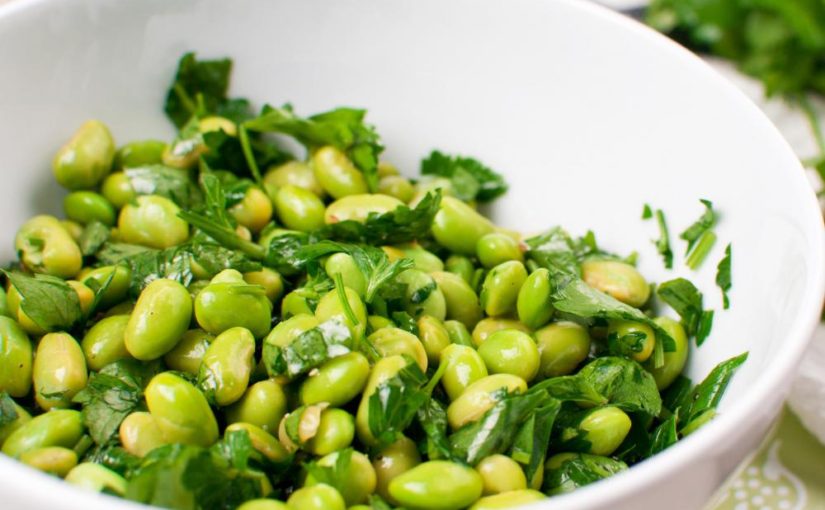When I was in college, I was all about the tofu. After all, it was considered the ultimate health food. According to the magazines I read, it was a complete vegetarian protein. It was also versatile, relatively low fat, and completely cool. Besides all that, I loved tofu, and still do. A little scrambled tofu at breakfast, spicy Thai eggplant and tofu for lunch…definitely a few cubes in my miso soup–yum.
But lately at the grocery store, I have been seeing a lot of food labels that say “soy free.” I thought maybe it was because some people are allergic to soybeans. That seemed reasonable enough. Food labels often list allergens, right?
Then I started wondering if there was something more serious involved. Could there really be something sinister about the innocent little soybean? Blasphemy!
I decided to do a little investigative reporting.
What I found out surprised me. I’m still a little verklempt over it. I’ll never be able to regard a plate of scrambled tofu the same way again.
Here’s the 4-1-1:
- Soy contains high levels of a chemical called phytic acid, which, it turns out, reduces assimilation of calcium, magnesium, copper, iron and zinc.
- Strangely enough, despite its reputation as a great alternative to animal protein, soybeans contain trypsin inhibitors, which interfere with protein digestion and can cause pancreatic problems.
- Plant estrogens (phytoestrogrens), which are an ingredient in some “natural” treatments for menopausal symptoms, such as hot flashes, can cause some of the same dangerous effects of hormone replacement therapy–an increased risk of breast cancer, for example. These phytoestrogens can also cause hypothyroidism, and maybe even thyroid cancer.
- Soy formula has been linked to autoimmune thyroid disease in infants.
- While touted as a good source of vitamin B12, it turns out that soy may actually increase the body’s requirement for B12.
- Processing of soy to create soy protein, such as texturized vegetable protein (TVP), causes the formation of toxic lysinoalanine and highly carcinogenic nitrosamines.
- Soy foods contain high levels of aluminum, which is toxic to the nervous system and the kidneys.
- Turns out that tofu isn’t a complete protein after all. In fact, it lacks the important sulfur-containing amino acids, methionine and cystine.
- Eating soy foods may even make you stupid. A recent study found that women with the highest levels of phytoestrogen in their blood had the lowest levels of cognitive function; In Japanese–Americans, tofu consumption in mid-life is associated with the occurrence of Alzheimer’s disease in later life.
“So,” you may ask, “if soy is so bad for you, how come people in Asia, who obviously eat lots of soy, are so healthy?” Well, surprise! Turns out that maybe they don’t eat so much soy after all. In fact, the average consumption of soy foods in Japan and China is only about two teaspoons per day, and usually as a condiment (soy sauce), not as a replacement for animal protein.
I’m sure it’s fine to eat soy products occasionally. But I’d definitely think twice before you grab that carton of soymilk at the grocery store for your daily smoothies.
In tomorrow’s blog, I’ll tell you all about the health risks of chocolate.
Just kidding. I’d never do that to you.
